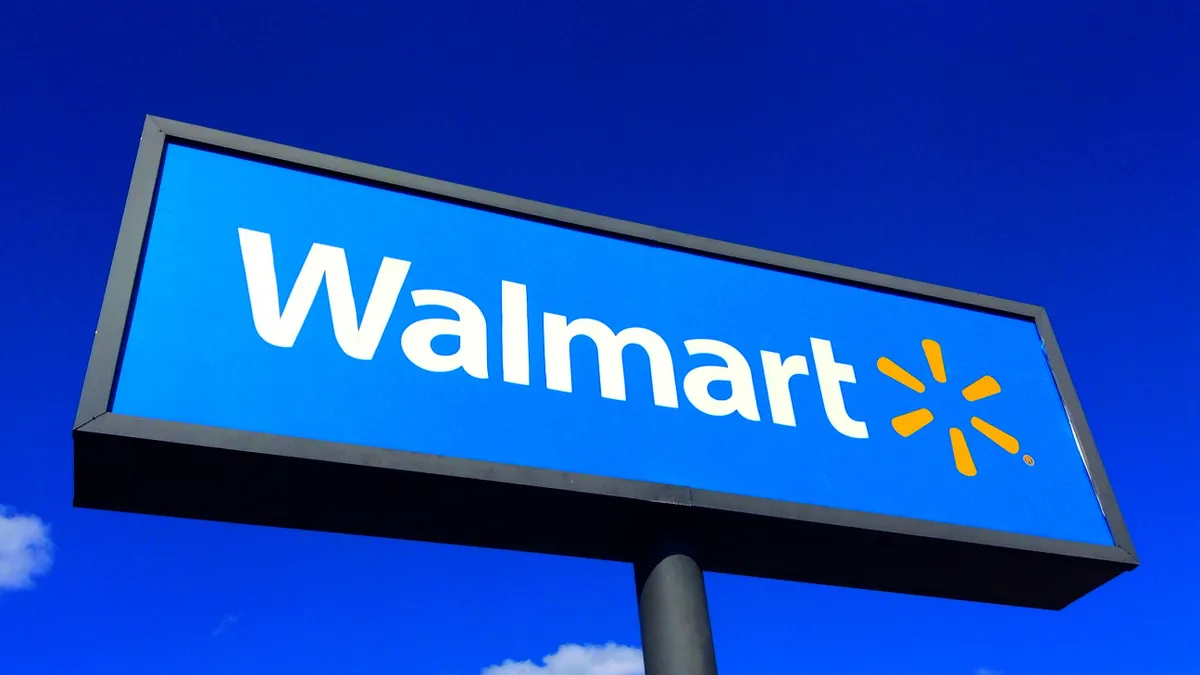Dive Brief:
- Walmart will offer meal kits on its website beginning in December, Mike McDevitt, CEO of meal kit company Terra’s Kitchen, told The Street. The retailer plans to feature kits from a variety of companies on its site, and charge a referral fee to companies for each order.
- McDevitt characterized the move as an experiment by Walmart to test out the growing industry. "This is a low-risk model for Walmart to see if their e-commerce shoppers will have an interest in meal kits, and if so, which ones are the most interesting to them," he told The Street. "There's no infrastructure risk, no marketing risk."
- Walmart’s move would tap into a $2 billion meal kit industry that’s undergoing rapid development. Last week, Albertsons bought meal kit company Plated, while Amazon is testing its own meal kits.
Dive Insight:
Walmart’s meal kit marketplace, if it in fact comes to fruition, is a low-stakes way for the retailer to test its presence in the $2 billion market. If the test goes well, Walmart might move the meal kits inside stores, create its own line, or follow Albertsons and buy a meal kit company. Whatever Walmart chooses to do, it has the scale and resources to effectively compete with Kroger, Amazon and other retailers entering the space.
The benefits of the deal for meal kit companies are less clear. Meal kit companies are keen on partnering with retailers, but Walmart isn’t offering an additional sales channel. The move would provide added exposure for companies, but referral fees could ultimately end up being yet another cost burden for them.
More than anything, Walmart’s plan indicates the high level of interest grocers have in meal kits right now. In a separate interview with Food Dive, McDevitt said that he has had talks with several grocers about potential partnerships. CEOs at other meal kit companies contacted by Food Dive have said the same.
What do retailers gain from partnering with a meal kit company, aside from meals? Tech expertise, mainly. As McDevitt explained, online companies like Plated and Terra’s Kitchen have vast amounts of consumer data that can inform meal kit sales and beyond.
“The data that e-comm companies have on consumers is ten times what grocery stores have on consumers,” he told Food Dive.
Of course, some retailers have developed their own meal kit lines, and can reap better margins by doing so. Publix offers meal kits through its Aprons brand, while Kroger has been expanding availability of its Prep + Pared line. Interestingly, these retailers may not be moving fast enough to capitalize on demand, according to some sources. A recent note to investors from Barclays analyst Karen Short noted that Kroger’s rollout is too slow, and that the company should seriously consider buying a meal kit company.
For meal kit providers, which are facing intense competition, decreasing spending and high customer acquisition costs, retail stores offer a potentially lucrative new channel. Partnerships, and even another acquisition, could be on the horizon as meal kit providers jockey for market positioning. Companies are also working hard to differentiate themselves by teaming with celebrities, making meals quicker and more convenient to cook, and even moving beyond meals altogether.
Earlier this month, Terra’s Kitchen announced partnerships with brands like Siggi’s yogurt and Suja juice as part of what McDevitt calls a move toward more traditional e-commerce sales. The site now offers more than sixty standalone products, including many breakfast items.
“As one customer told me, ‘my 6am bottleneck is as real as my 6pm bottleneck, can you help me out?’” said McDevitt. “We may have begun as a meal kit company, but we’re very quickly seeing that the real opportunity is in overall e-comm grocery.”










